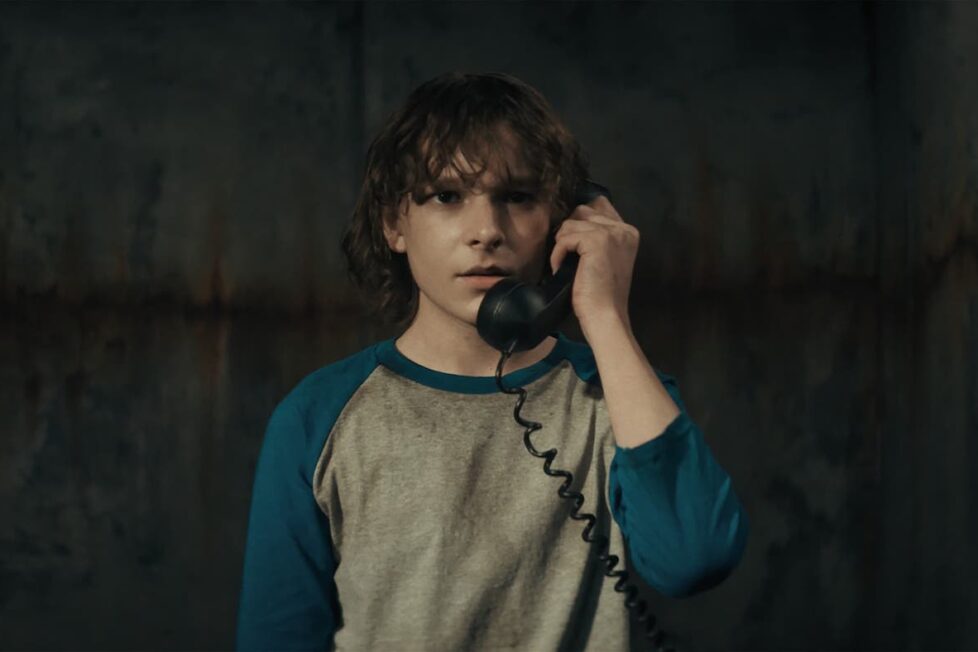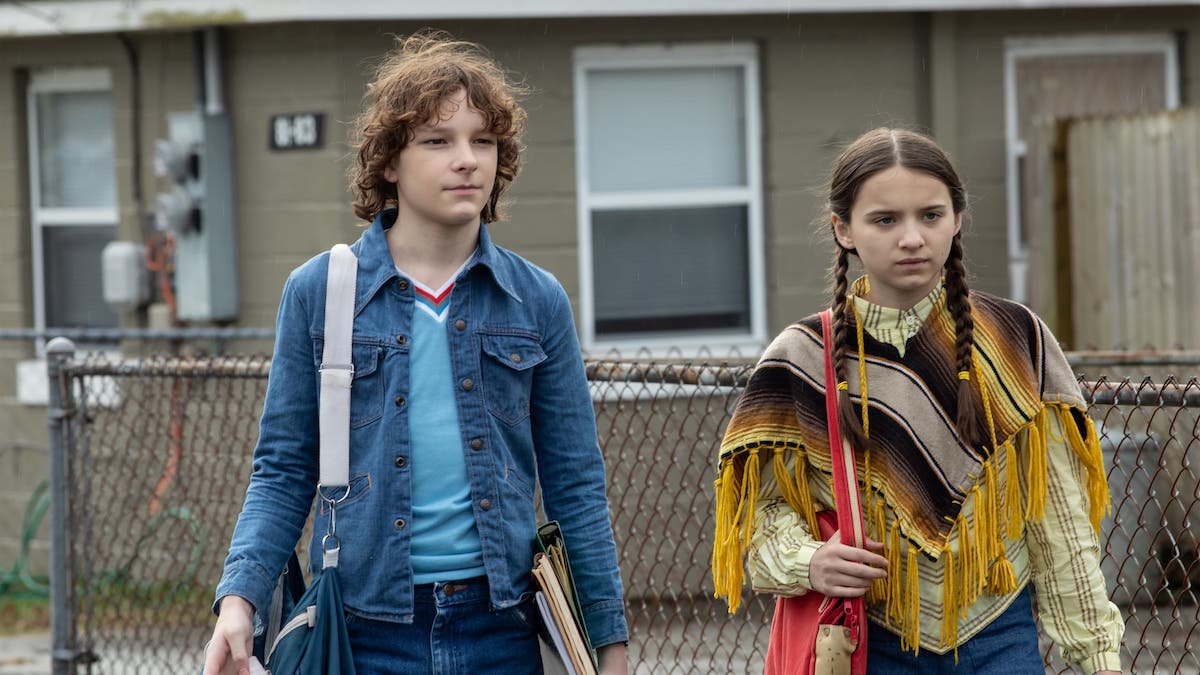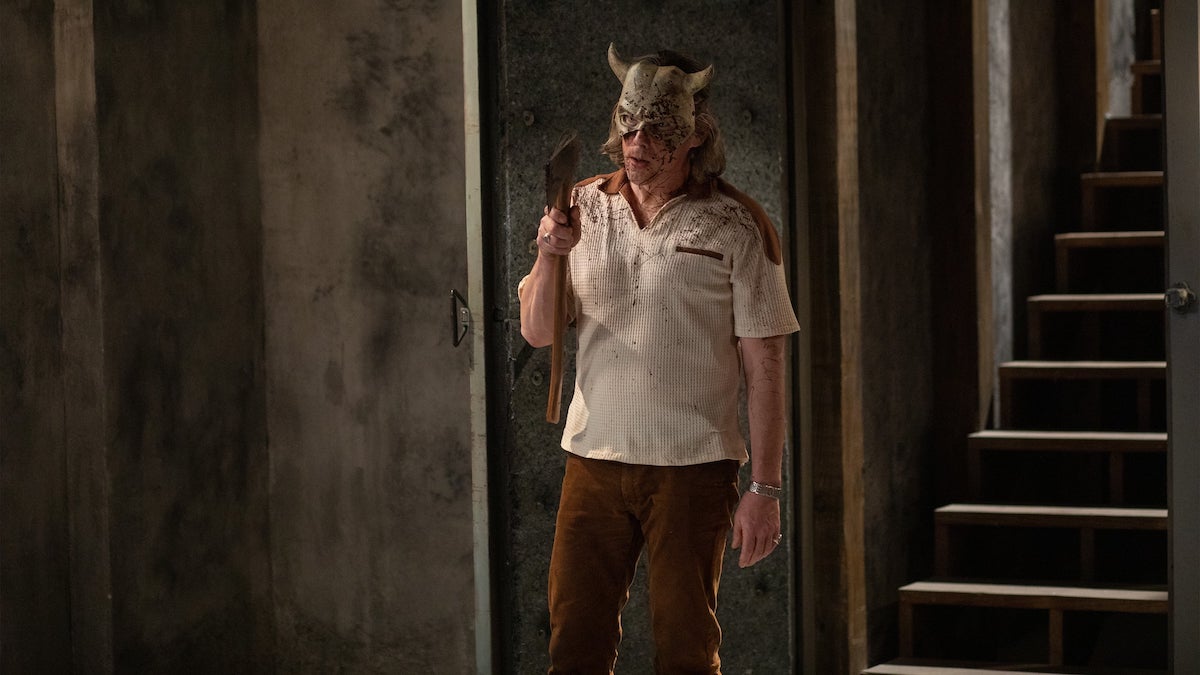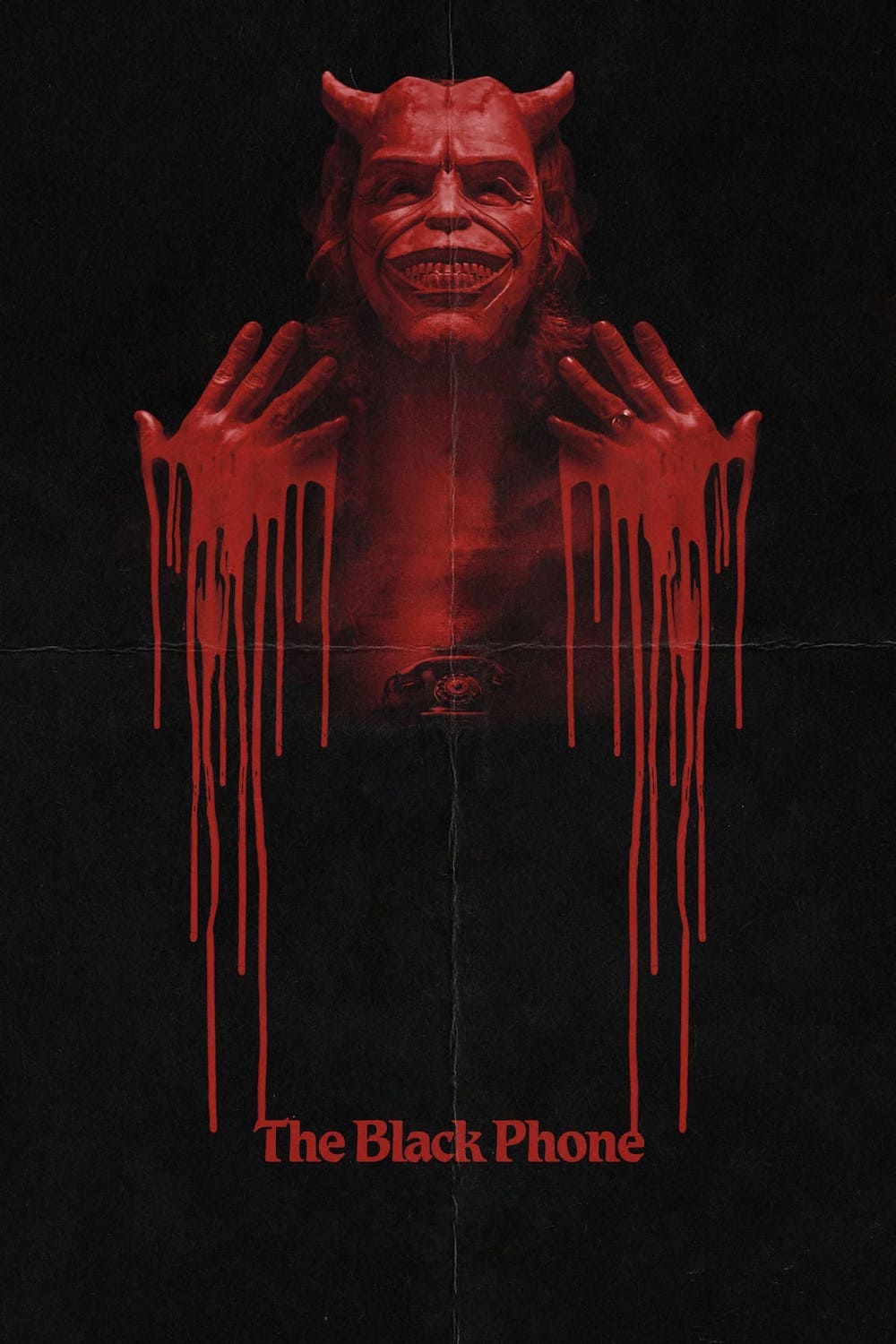THE BLACK PHONE (2021)
After being abducted by a child killer and locked in a basement, a 13-year-old boy starts receiving calls on a disconnected phone from the killer's previous victims.

After being abducted by a child killer and locked in a basement, a 13-year-old boy starts receiving calls on a disconnected phone from the killer's previous victims.


I’m glad Scott Derrickson (Doctor Strange) is back making horror movies. After an eight-year break from the genre that’s been the basis of four of his six previous films, Derrickson returns with The Black Phone, which takes place around a Colorado town in the late 1970s where children are being kidnapped by a mysterious figure known as ‘The Grabber’ (Ethan Hawke).
13-year-old Finney Shaw (Mason Thomas) and his younger sister Gwen (Madeleine McGraw) see one kid after another from their school disappear, while suffering at the hands of their abusive and alcoholic father Terrence (Jeremy Davies) at home. Ostensibly, the stars of the film are young Thomas and McGraw, although one could argue it’s Hawke because he’s a star name with the flashiest role… but in truth it’s Derrickson’s ability to create such a claustrophobic atmosphere.

Derrickson’s films haven’t been critically acclaimed, but horror fans have gone to bat for The Exorcism of Emily Rose (2005) and Sinister (2012). I even have a fond attachment to his Training Day-meets-The Exorcist mishmash Deliver Us from Evil (2014), which is almost solely down to the director’s ability to throw audiences into a believable world that fills like it’s pouring out of the screen.
The Black Phone is no different. Derrickson reportedly tried and failed to make Doctor Strange in the Multiverse of Madness (2022) into a full-blown horror film, which would’ve been a first for Marvel Studios, but Disney had other ideas and Derrickson walked off the project to make The Black Phone with his writing partner C. Robert Cargill.
From The Black Phone’s opening moments, it’s evident Derrickson is back in his preferred playground. The sounds of ’70s Denver feel like they’re surrounding you, so you’re immediately enveloped into the story and its world-building. And that’s not to say the actors are a letdown, as both young newcomers turn in strong performances—especially McGraw, who has more opportunities to be funny, frightened, heroic, and inquisitive. I’m excited to see what she’s in next.

Although his character has the most screen time of anyone else, Thomas’s Finny actually has less to work with. He’s more of a proxy for the audience and avatar for the story’s themes, meaning Finny can be a frustrating presence at times. Hawke shines the most, as expected, despite almost zero mask-less screen time as The Grabber. He’s not at the level of Tom Hardy when it comes to performing without the use of facial expressions, but he’s certainly effective and makes this villain legitimately scary.
As usual for a Derrickson movie, there are unexpected supernatural flourishes that almost veer into magical realism and are a departure from the rest of the film’s more realistic tone. The Black Phone’s at its best when it’s entrenched in the simple horror of its freakish tale, adapting a short story by author Joe Hill (Horns), and on shakier ground when psychic dreams come into play.
This tonal mashup, alongside with the been-there-seen-that feel to the climax, is what prevents The Black Phone becoming a modern classic. There’s enormous promise in beginning, but being unable to stick the landing seems to be a recurring problem for a lot of big-idea horror films these days. However, I’d much rather see Derrickson making films like this than a big-budget Marvel adventure; so give me drab and dingy Denver over a multicoloured alien planet any day of the week.
The Black Phone’s strong sense of style and committed performances makes for one of the better horror outings of the year so far.
USA | 2021 | 103 MINUTES | 2.39:1 | COLOUR | ENGLISH


director: Scott Derrickson.
writers: Scott Derrickson & C. Robert Cargill (based on the short story by Joe Hill).
starring: Mason Thames, Madeleine McGraw, Jeremy Davies, James Ransone & Ethan Hawke.
